Complete Solutions to Level 1 Single Correct of chapter FLUID MECHANICS of Class 11 book with complete answers and questions
| Class 11 | PHYSICS |
| Chapter | FLUID MECHANICS |
| DC PANDEY | Level 1 Single Correct |
| Number Of Questions | 49 |
| Academic Year | 2023-24 |
Choose the correct option:
When a sphere falling in a viscous fluid attains terminal velocity, then
View SolutionWhich one of the following represents the correct dimensions of the quantity : `x=(eta)/(rho)`, where `eta`=coefficient of visocosity and `rho` =the density of a liquid?
View SolutionViscosity of liquids
View SolutionAt critical temperature, the surface tension of a liquid
View SolutionA liquid will not wet the surface of a solid if the angle of contact is
View SolutionThe lower end of a capillary tube touches a liquid whose angle of contact is `110^(@)`, the liquid .
View SolutionWhen water droplets merge to form a bigger drop
View Solution1000 drops of same size are charged to a potential of 1 V each. If they coalesce to form in single drop, its potential would be
View SolutionTwo soap bubbles in vacuum of radius `3cm` and` 4cm` coalesce to form a single bubble, in same temperature. What will be the radius of the new bubble
View SolutionA small ball (mass m) falling under gravity in a viscous medium experience a drag force proportional to the instantaneous speed u such that `F_(drag)=ku`. Then the terminal speed of ball within viscous medium is
View Solution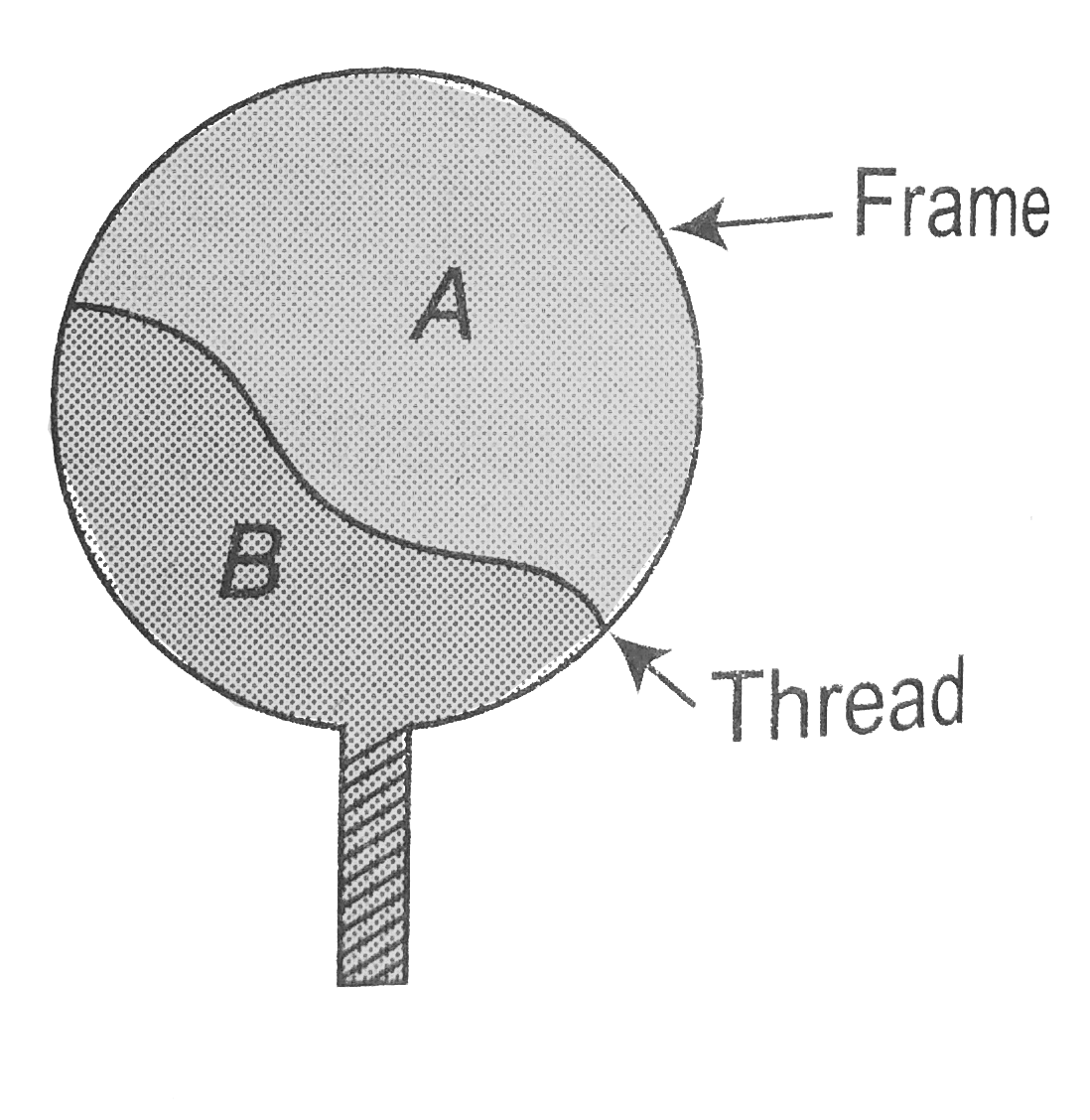
A thread is tied slightly loose to a wire frame as in figure and the frame is dipped into a soap solution and taken out . The frame is comletely covered with the film. When the portion `A` puntured with a pin The thread.
View SolutionA steel ball of mass m falls in a viscous liquid with terminal velocity v, then the steel ball of mass `8m` will fall in the same liquid with terminal velocity
View SolutionA liquid flows between two parallel plates along the x-axis. The difference between the velocity of two layers separated by the distance `dy` is `dv`. If` A` is the area of each plate, then Newton's law of viscosity may be written as
View SolutionThe work done to split a liquid drop id radius `R` into `N` identical drops is (taken `sigma` as the surface tension of the liquid)
View SolutionTwo soap bubble of different radii `R_(1)` and `R_(2) (ltR_(1))` coalesce to form an interface of radius R as shown in figure. The correct value of R is
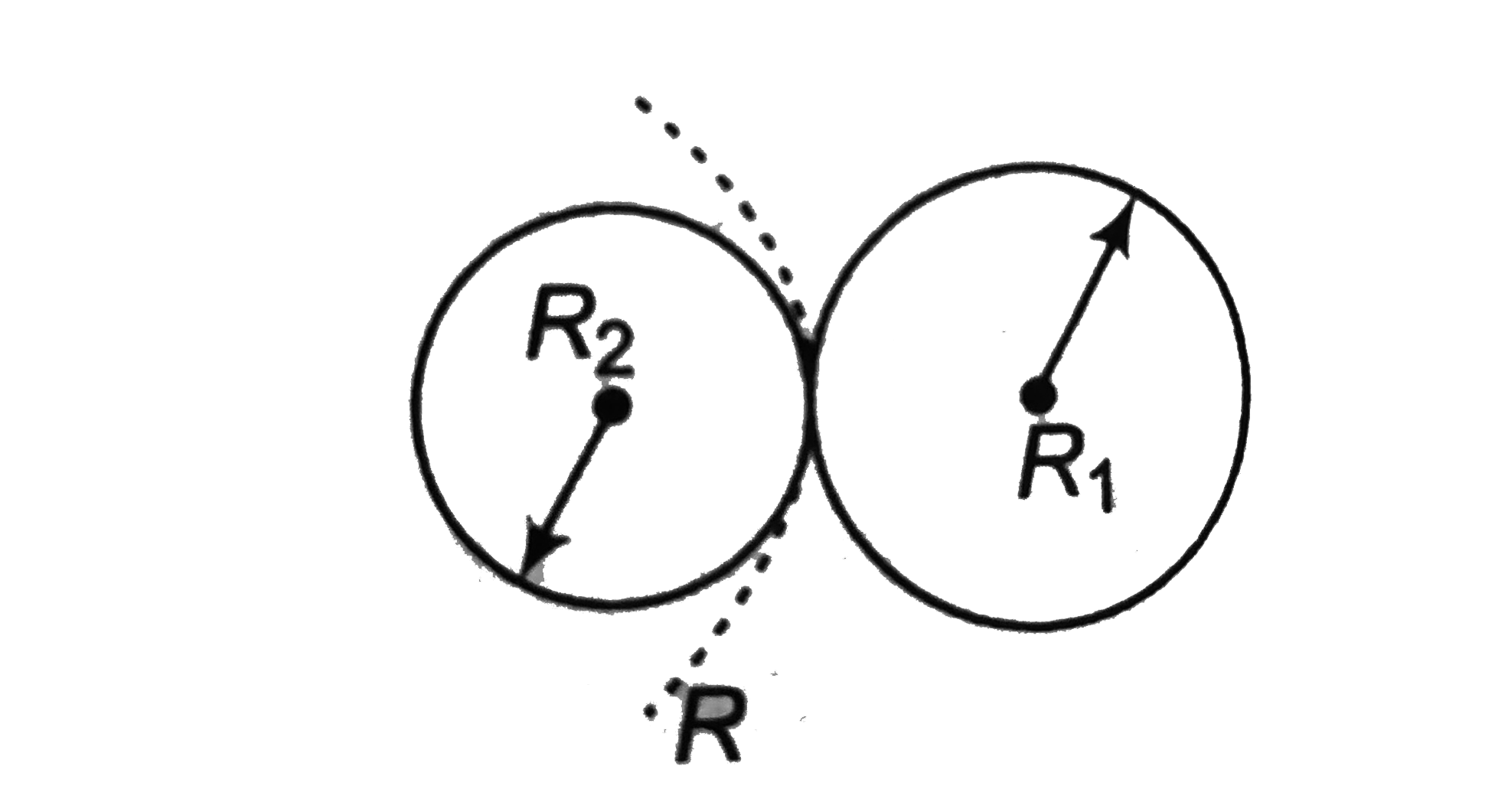 .
.
View SolutionA viscous liquid flows through a horizontal pipe of varying cross-sectional area. Identify the option which correctly represents the variation of height of rise of liquid in each vertical tube
View SolutionThe terminal velocity of a rain drop is `30cm//s`. If the viscosity of air is `1.8xx10^(-5)Nsm^(-2)`.The radius of rain drop is
View SolutionIf a capillary tube is dipped and the liquid levels inside and outside the tube are same. Then the angle of contact is
View SolutionUniform speed of 2 cm diameter ball is `20cm//s` in a viscous liquid. Then, the speed of 1 cm diameter ball in the same liquid is
View SolutionThe height of mercury barometer is h when the atmospheic pressure is `10^(5)Pa`. The pressure at x in the shown diagram is
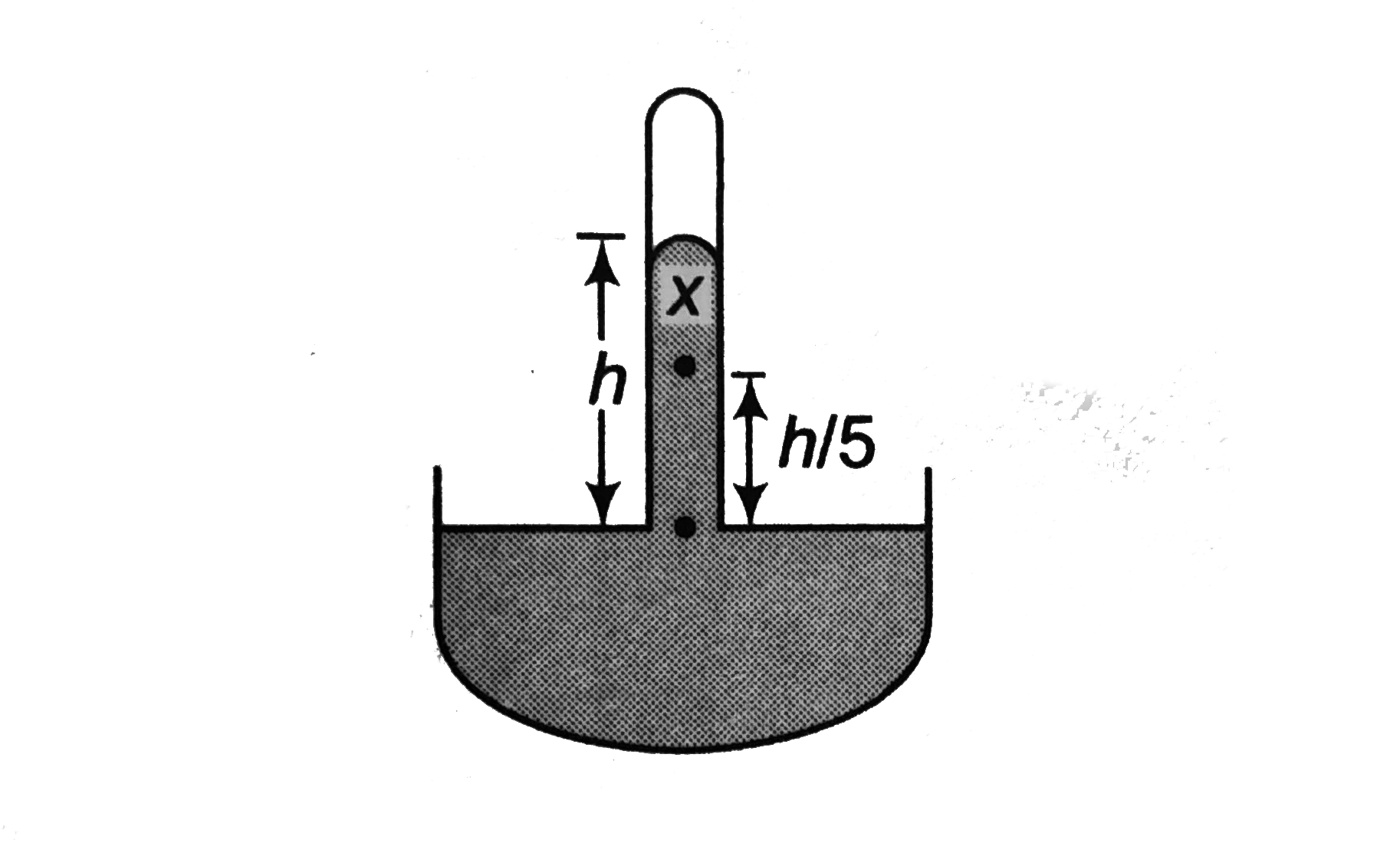
View SolutionA body floats in water with its one-third volume above the surface. The same body floats in a liquid with one-third volume immersed. The density of the liquid is
View SolutionA piece of ice is floating in a beaker containing thick sugar solution of water. As the ice melts, the total level of he liquid
View SolutionA body floats in completely immersed condition in water as shown in figure. As the whole system is allowed to slide down freely along the inclined surface, the magnityde of buoyant force
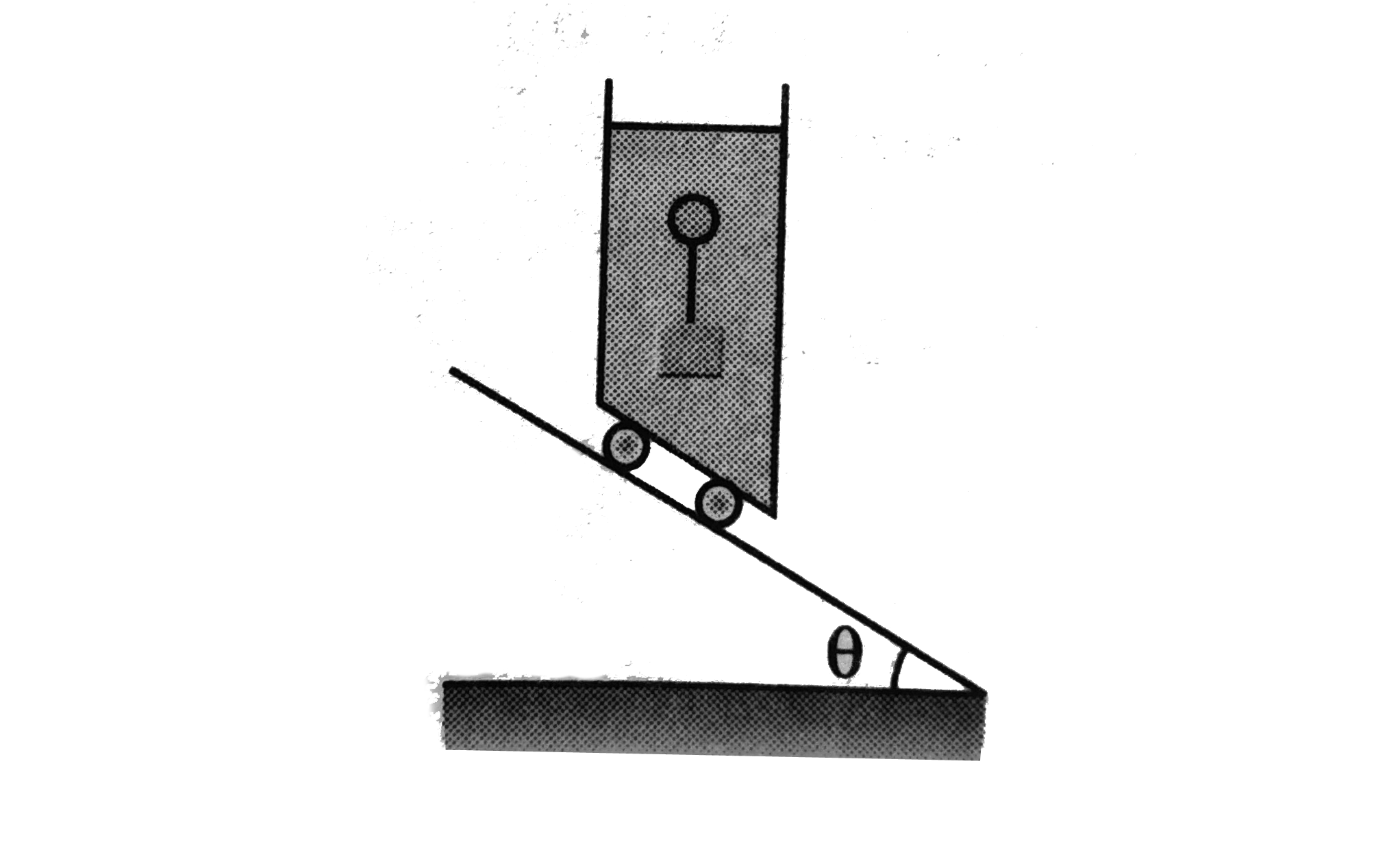
View SolutionThe figure represents a U-tube of uniform cross-section filled with two immiscible liquids. One is water with density `rho_(w)` and the other liquid is of density `rho` . The liquid interface lies `2 cm` above the base. The relation between `rho` and `rho_(w)` is
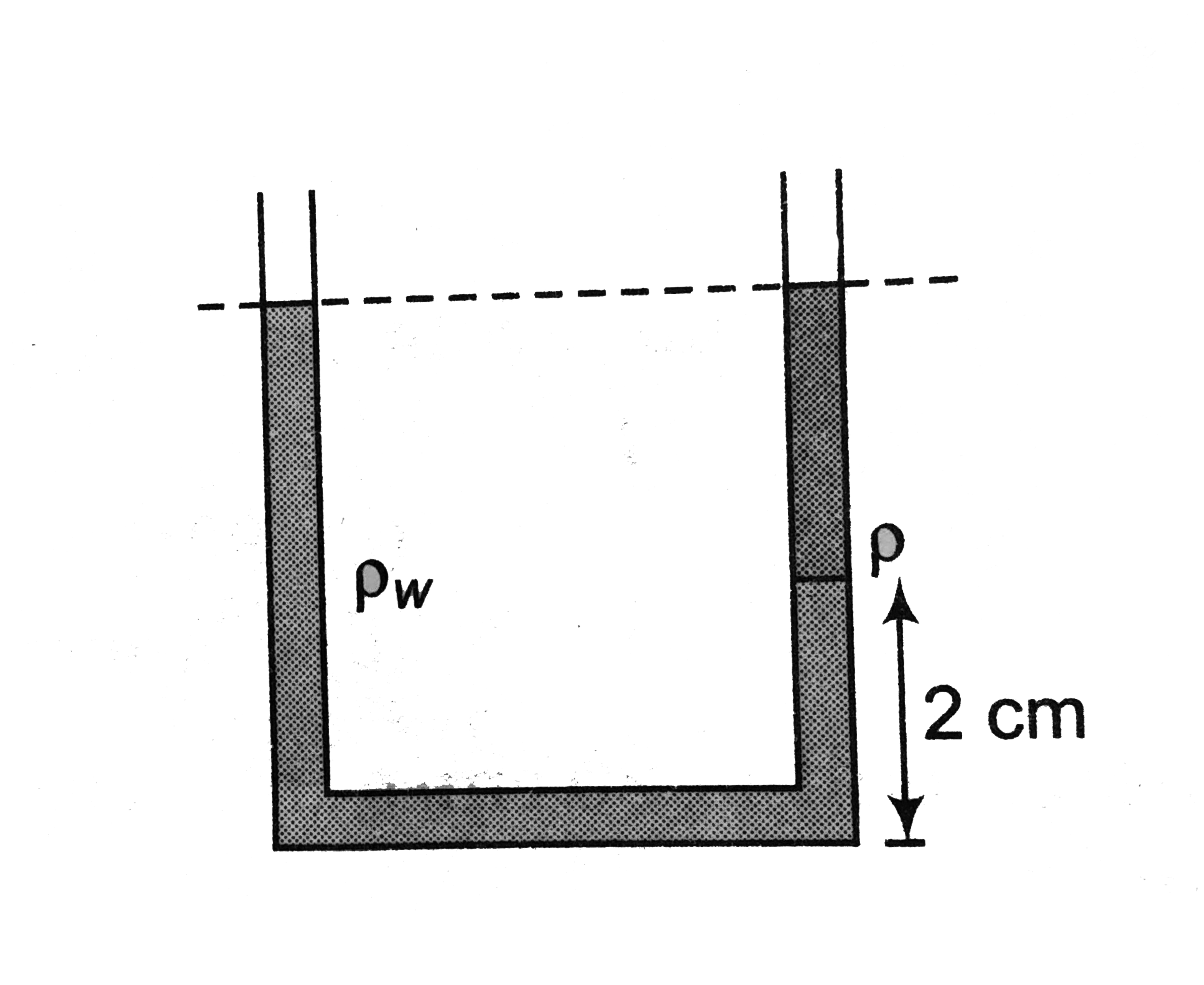 .
.
View SolutionFor the arrangement shown in figure, initially the balance `A`and `B` reads `F_(1)` and `F_(2)` respectively and `F_(1)gtF_(2)`. Finally when the block is immersed in the liquid then the readings of balance `A` and `B` are `f_(1)` and `f_(2)` respectively. Indentify the statement which is not always (where, F is some force ) correct statement.
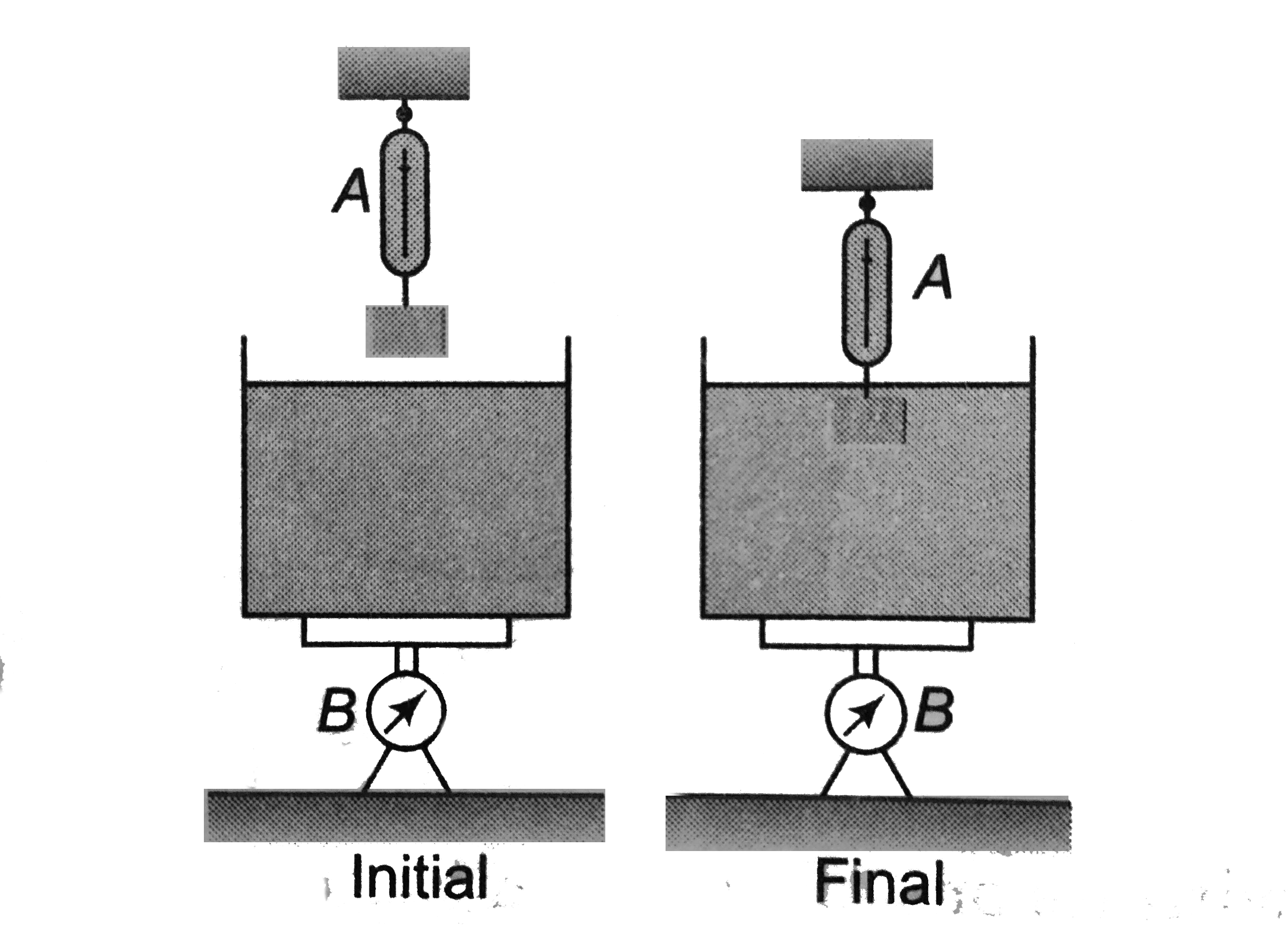 .
.
View SolutionWhen a tap is closed, the manometer attached to the pipe reads `3.5xx10^(5)Nm^(-2)`. When the tap is opened, the reading of manometer falls to `3.0xx10^(5)Nm^(-2)`. The velocity of water in the pipe is
View SolutionA balloon of mass M descends with an acceleration `a_(0)`. The mass that must be thrown out in order to give the balloon an equal upwards acceleration will be
View SolutionThe hydraulic press shown in the figure is used to raise the mass M through a height of `0.5 cm` by performing `500J` of work at the small piston. The diameter of the large piston is `10cm`, while that of the smaller one is `2 cm`. The mass M is
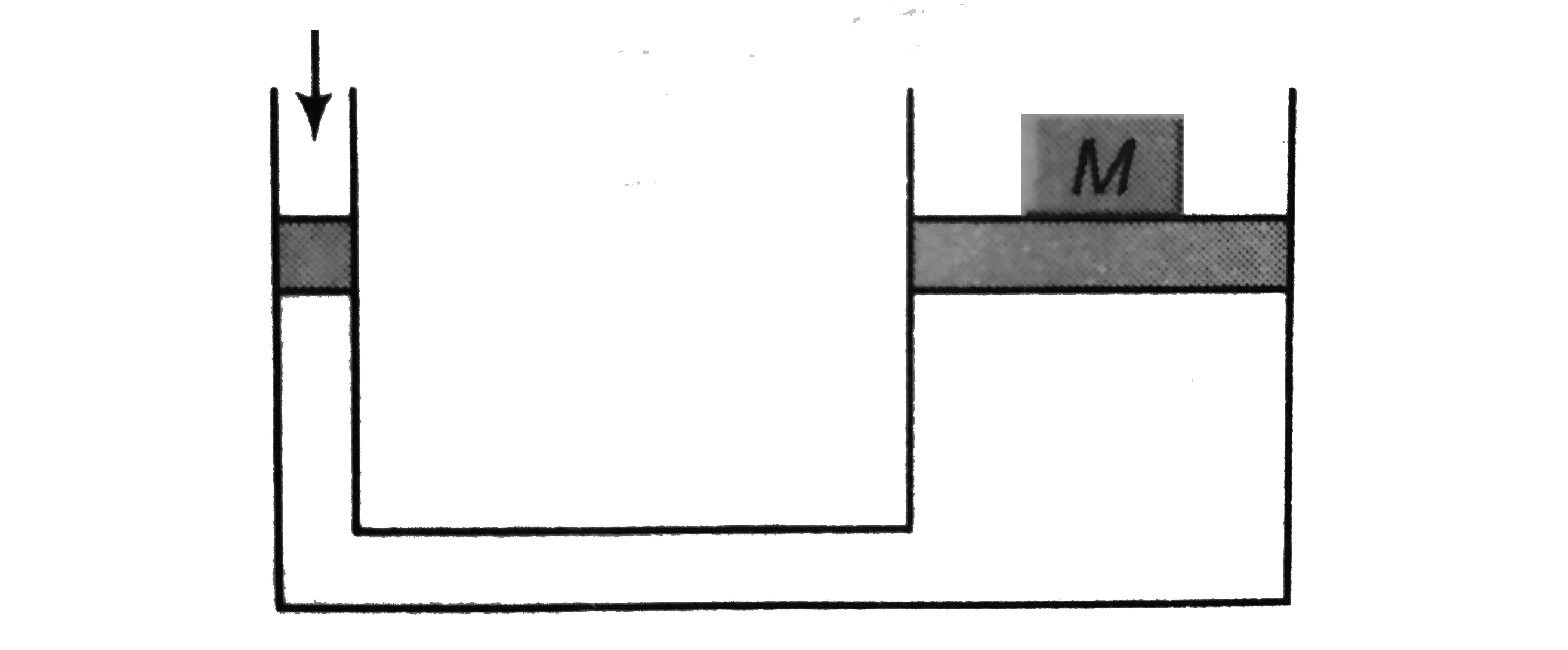
View SolutionWhen equal volumes of two substance are mixed, the specific gravity of the mixurie is 4. When equal weights of the same substance are mixed, the specific gravity of the mixture is 3. The soecufuc gravities of the two substance could be
View SolutionA block of ice of total area A and thicknes `0.5m` is floating in water. In order to just support a man of nass `100kg`, the area A should be (the specific gravity of ice is 0.9)
View SolutionA piece of gold `(rho=19.3 g//cm^(3))` has a cavity in it. It weights `38.2g` in air and `36.2g` in water. The volume of the cavity in glold is
View SolutionWater stands at a depth `D` behind the vertical upstream face of a dam as shown in the figure. The force exerted on the dam by water per unit width is
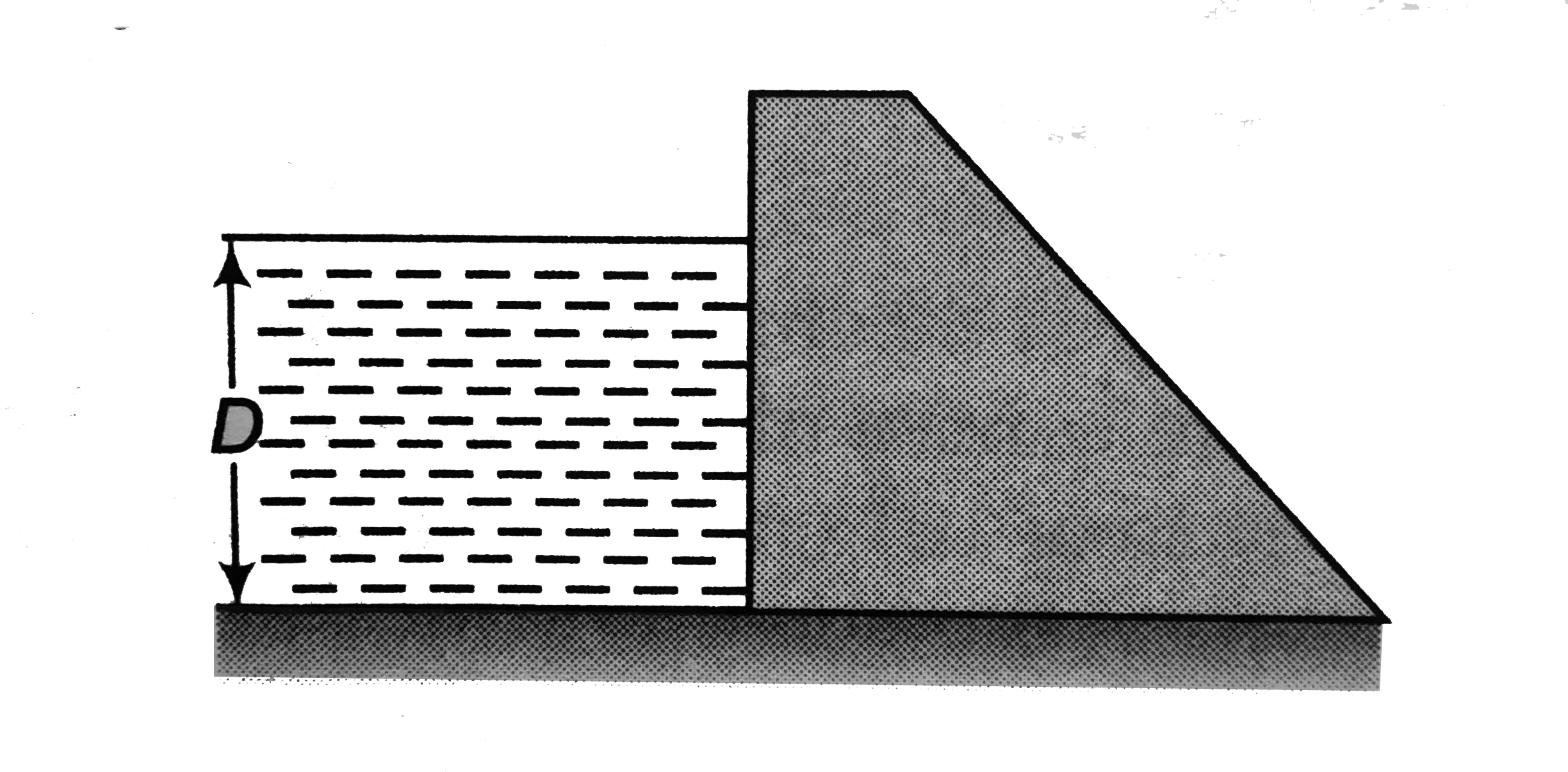
View SolutionThe volume of a liquid flowing per second out of an orifice at the bottom of a tank does not depend upon
View SolutionThe pipe shows the volume flow rate of an ideal liquid at certain time and its direction. What is the value of `Q` in `m^(3)//s`? (Assume steady state and equal area of cross section at each opening)
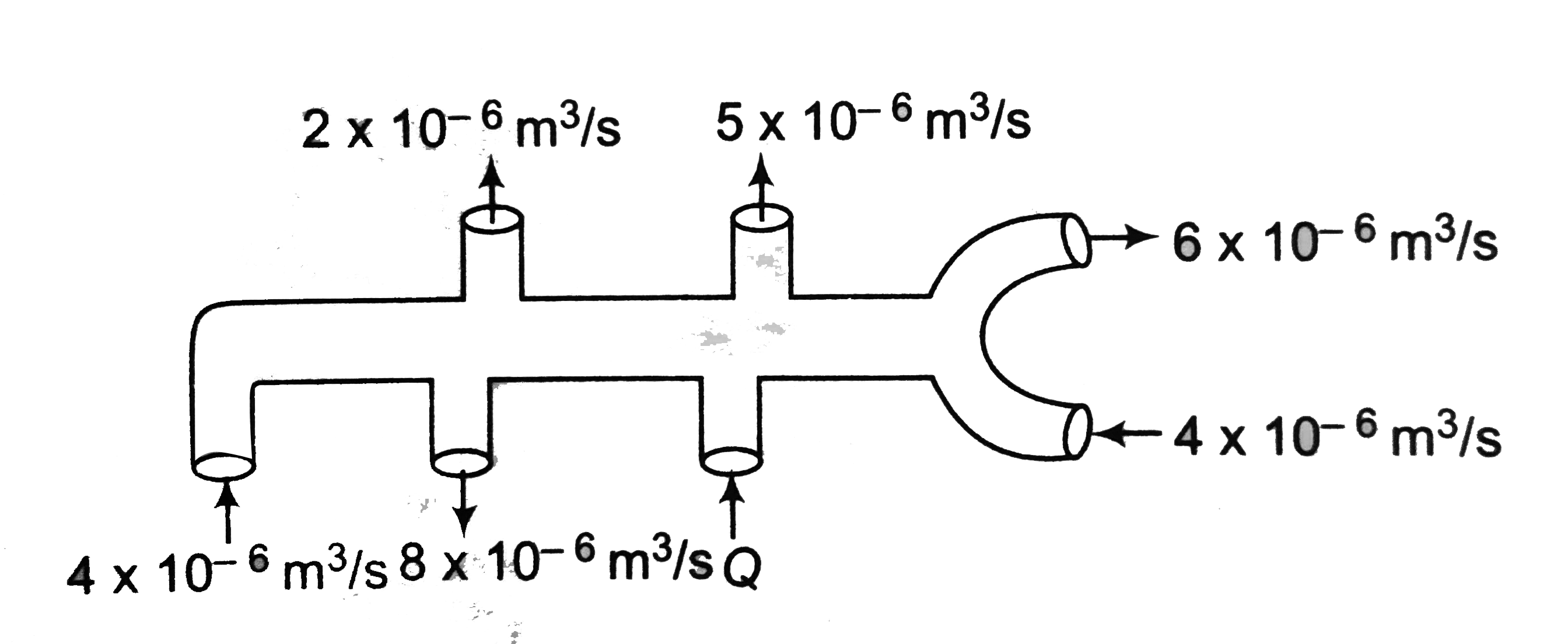
View SolutionA uniform cube of mass `M` is floating on the surface of a liquid with three fourth of its volume immersed in the liquid `(density =rho)`. The length of the side of the cube is equal to
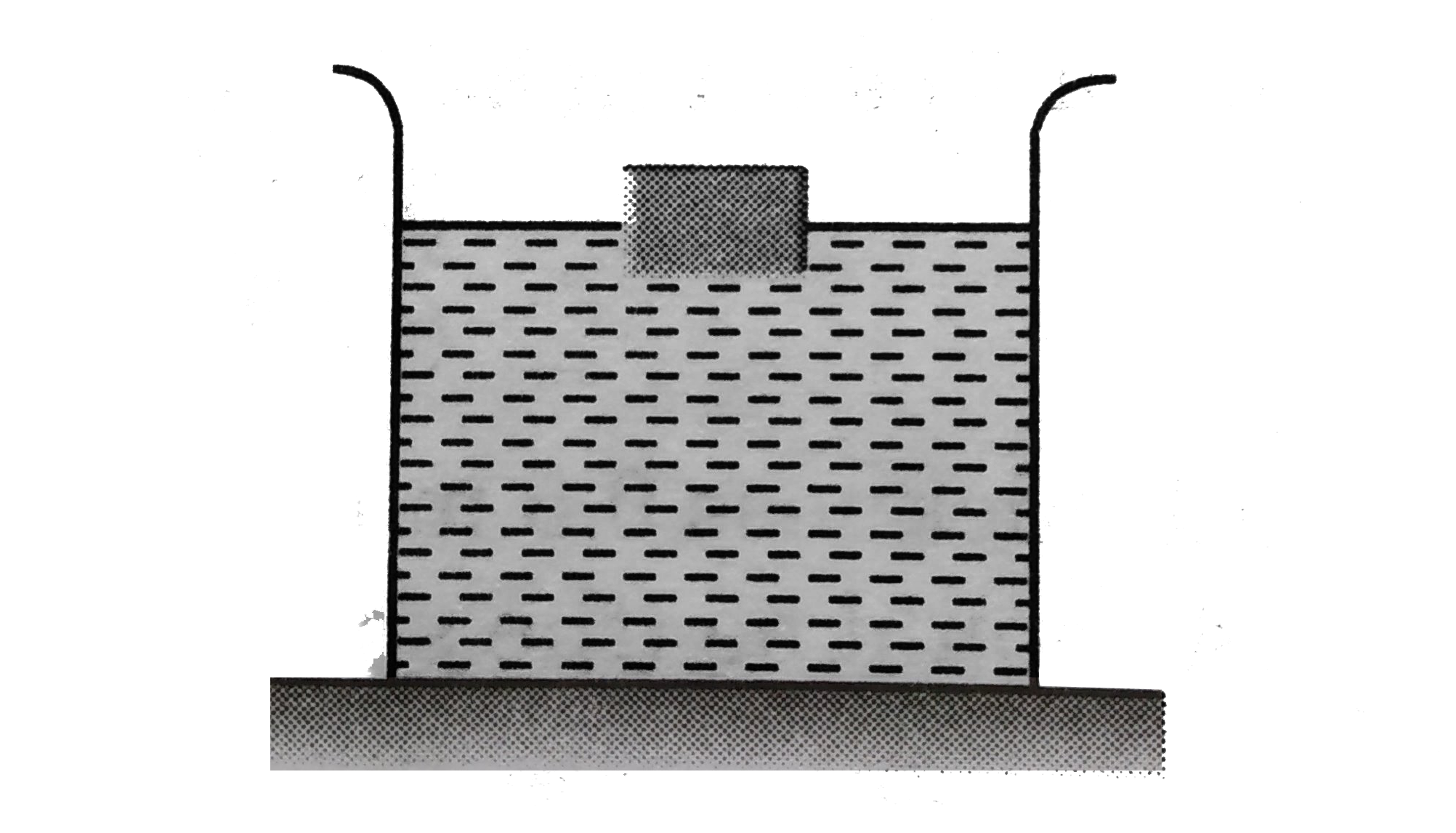
View SolutionWater rises to a height of `10 cm` in a capillary tube and mercury falls to a depth of `3.42 cm` in the same capillary tube. If the density of mercury is `13.6 g//c.c.` and the angles of contact for mercury and for water are `135^@` and `0^@`, respectively, the ratio of surface tension for water and mercury is
View SolutionA capillary glass tube records a rise of `20cm` when dipped in water. When the area of cross-section of the tube is reduced to half of the former value, water will rise to a height of
(A)`10sqrt(2)cm` (B)`10cm` (C)`20cm` (D)`20sqrt(2)cm`
View SolutionA cylindrical vessel open at the top is `20cm` high and `10 cm` in diameter. A circular hole of cross-sectional area `1cm^(2)` is cut at the centre of the bottom of the vessel. Water flows from a tube above it into the vessel at the rate of `10^(2)cm^(3)//s`. The height of water in the vessel under steady state is (Take `g=10m//s^(2))`.
View SolutionA horizontal pipeline carries water in a streamline flow. At a point along the tube where the cross sectional area is `10^(-2)(m^2)`, the water velcity is `2m//s` and the pressure is 8000Pa. The pressure of water at another point where cross sectional area is `0.5xx(10)^(-2)(m^2)` is
View SolutionEight spherical rain drops of the same mass and radius are falling down with a terminal speed of `6cms^(-1)`. If they coalesce to form one big drop, what will be its terminal speed? Neglect the buoyancy due to air
View SolutionIn a surface tension experiment with a capillary tube water rises upto `0.1m`. If the same experiment is repeated in an artificial satellite, which is revolving around the earth, water will rise in the capillary tube upto a height of
View SolutionTwo unequal soap bubbles are formed one on each side of a tube closed in the middle by a tap. What happens when the tap is opened to put the two bubbles in communication?
View SolutionA capillary tube of radius R is immersed in water and water rises in it to a height H . Mass of water in the capillary tube is . M If the radius of the tube is doubled, mass of water that will rise in the capillary tube will now be
View SolutionA tube of fine bore `AB` is connected to a manomeer `M` as shown. The stop cock `S` controls the flow in air. `AB` is dipped into a liquid whosw surface tension is `sigma`. On opening the stop cock for a while, a bubble is formed at `B` and the manometer level is recorded, showing a difference `h` in the levels in the two arms. If `rho` be the density of manometer liquid and `r` the radius of curvature of the bubble, then the surface tension `sigma` of the liquid is given by
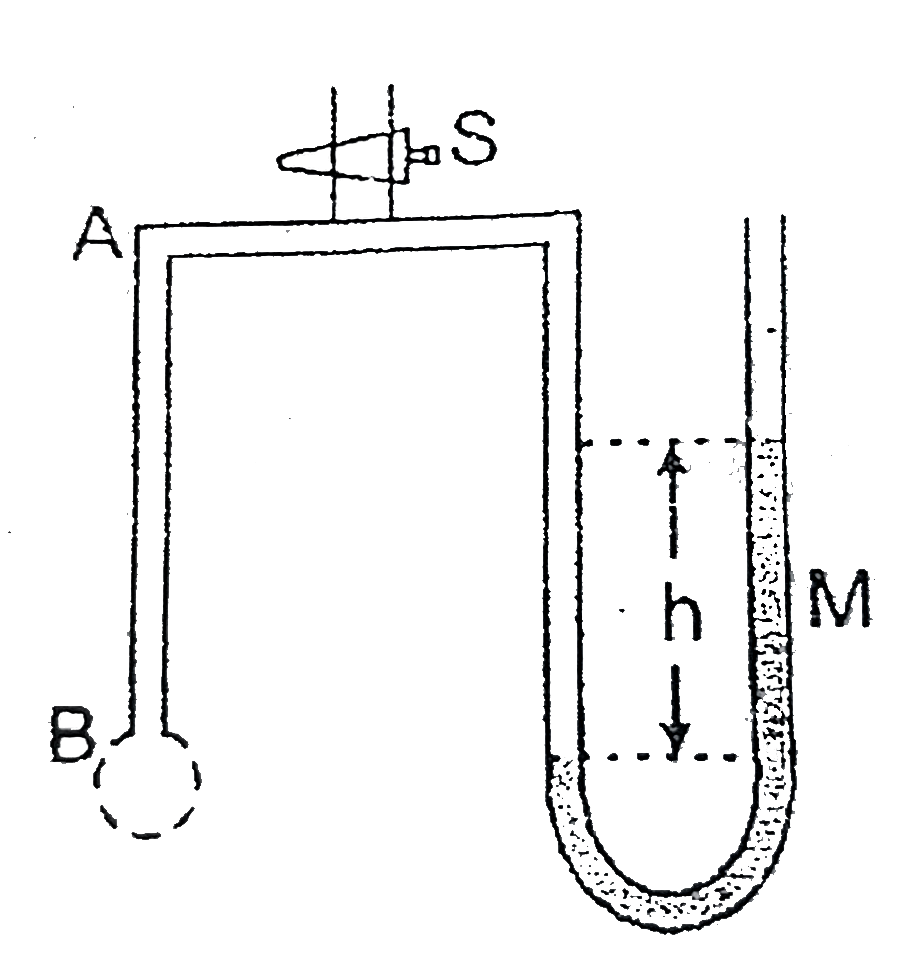
View SolutionA vessel whose bottom has round holes with a diameter of `d=0.1mm` is filled with water. The maximum height of the water level h at which the water does not flow out, will be (The water does not wet the bottom of the vessel). `[ST of water=70 "dyne"//cm]`
View SolutionA large number of liquid drops each of radius 'a' coalesce to form a single spherical drop of radius b. The energy released in the process is converted into kinetic energy of the big drops formed. The speed of big drop will be
View SolutionA glass capillary tube (closed from tap) of inner diameter `0.28mm` is lowered vertically into water in a vessel. The pressure in the capillary tube so that water level in the tube is same as that in the vessel is `N//m^(2)` is (surface tension of water `=0.7N//m` and atmospheric pressure `=10^(5)N//m^(2)`.
View SolutionA thin wire is bent in the form of a ring of diameter `3.0cm`.The ring is placed horizontally on the surface of soap solution and then raised up slowly. Upward force necessary to break the vertical film formed between the ring and the solution is
View SolutionOne end of a glass capillary tube with a radius `r=0.05cm` is immersed into water to a depth of `h=2cm`.Excess pressure required to blow an air bubble out of the lower end of the tube will be `(S.T` of water `=70"dyne"//cm`).Take `g=980cm//s^(2)`.
View Solution
Level 1 Single Correct questions and complete solutions for chapter FLUID MECHANICS of DC PANDEY ENGLISH of Class 11
All Exercises from DC PANDEY Class 11 PHYSICS FLUID MECHANICS
- Assertion and Reason
- B) Medical entrance special format question
- Check point 13.1
- Check point 13.2
- Check point 13.3
- Check point 13.4
- Example
- Example 13.1
- Example 13.10
- Example 13.11
- Example 13.12
- Example 13.13
- Example 13.14
- Example 13.15
- Example 13.16
- Example 13.17
- Example 13.18
- Example 13.19
- Example 13.2
- Example 13.20
- Example 13.21
- Example 13.22
- Example 13.23
- Example 13.24
- Example 13.25
- Example 13.26
- Example 13.27
- Example 13.28
- Example 13.29
- Example 13.3
- Example 13.30
- Example 13.31
- Example 13.32
- Example 13.33
- Example 13.34
- Example 13.35
- Example 13.4
- Example 13.5
- Example 13.6
- Example 13.7
- Example 13.8
- Example 13.9
- Exercise16.1
- Exercise16.2
- Exercise16.3
- Exercise16.4
- Exercise16.5
- Exercise16.6
- Exercise16.7
- Exercise16.8
- Introductory Exercise
- Level 1 Assertion And Reason
- Level 1 Single Correct
- Level 1 Subjective
- Level 2 Comprehension Based
- Level 2 More Than One Correct
- Level 2 Single Correct
- Match the columns
- Medical entranes gallery
- Miscellaneous Examples
- Solved Examples
- Subjective
- Subjective Question
- Taking it together